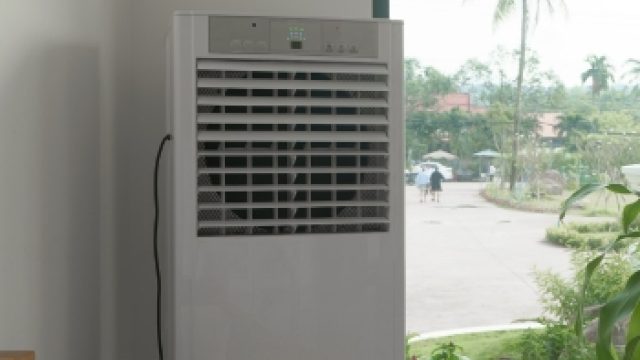Have you ever wondered about the lifespan of a cooler, that trusty companion that keeps your drinks chilled and food fresh during outdoor adventures?
The average life of a cooler depends on various factors, such as its build quality, usage frequency, and maintenance. In this exploration, we’ll delve into the typical lifespan of coolers, highlight ways to extend their longevity, and uncover the key considerations to make an informed decision when purchasing one.
Let’s discover how to make your cooler withstand the test of time and countless unforgettable journeys.
Understanding Cooler Types
When we talk about coolers, we encounter a variety of options, each designed to serve a specific purpose. The three primary types of coolers in the market are air coolers, water coolers, and refrigerators.
Each type comes with its unique set of advantages and disadvantages, which significantly influences their lifespan.
The construction and components of coolers play a crucial role in determining how long they will last. For instance, air coolers typically rely on simple mechanisms involving fans and water-soaked pads.
On the other hand, refrigerators use complex systems of compressors and refrigerants. Understanding these differences will give us valuable insights into the average lifespan of each type of cooler.
Factors Affecting Cooler Lifespan
The environment in which a cooler operates has a significant impact on its lifespan. Factors like temperature, humidity, and exposure to sunlight can accelerate wear and tear.
Coolers subjected to extreme temperatures or high humidity levels might deteriorate faster compared to those in more favorable conditions.
The more frequently a cooler is used and the heavier its workload, the shorter its lifespan is likely to be.
Commercial coolers that run continuously are likely to wear out faster than domestic ones that enjoy periods of rest.
The saying “you get what you pay for” applies to coolers as well. Coolers manufactured with high-quality materials and superior craftsmanship tend to last longer.
On the other hand, cheaper alternatives might save you money upfront but could end up needing replacement much sooner.
Average Lifespan of Air Coolers
Air coolers, also known as evaporative coolers, have been popular for a long time due to their energy efficiency and eco-friendly operation.
On average, a well-maintained air cooler can last anywhere from 5 to 15 years, depending on various factors.
To maximize the lifespan of an air cooler, regular maintenance is crucial.
Cleaning the pads, checking the fan, and ensuring proper water circulation are some simple yet effective steps to extend its longevity.
Average Lifespan of Water Coolers
Water coolers, which are commonly seen in offices and public spaces, come in various forms, such as bottled water dispensers or point-of-use (POU) coolers.
On average, a well-cared-for water cooler can last around 5 to 10 years.
To ensure a water cooler serves us well over the years, we should regularly clean the dispensing area, sanitize the reservoir, and replace the water filters as recommended by the manufacturer.
Average Lifespan of Refrigerators
Refrigerators have become an indispensable part of modern life, serving both households and businesses.
The average lifespan of a refrigerator can vary significantly depending on its quality and usage. Generally, a domestic refrigerator can last for 10 to 20 years, while commercial ones might have a shorter lifespan due to heavier usage.
Understanding the warning signs of a deteriorating refrigerator can help us take timely action and potentially extend its life.
Issues like constant temperature fluctuations or excessive noise might indicate underlying problems.
Related Article: What Happens When CPU Cooler Dies and How to Avoid It
Signs of Cooler Deterioration
No matter the type of cooler, certain signs indicate that its end might be approaching.
Being aware of these signs allows us to plan for a replacement or take measures to salvage the cooler if possible.
Sometimes, coolers encounter problems that can be fixed with simple troubleshooting steps.
Identifying and addressing these issues promptly can significantly prolong a cooler’s life.
Extending the Life of Your Cooler
Regardless of the type of cooler you own, following some general maintenance tips can ensure it operates optimally and lasts longer.
Knowing when to attempt a DIY repair and when to seek professional help can make a difference in the cooler’s overall lifespan.
Some repairs are simple enough for anyone to handle, while others require the expertise of a qualified technician.
Upgrading Your Cooler
As technology advances, newer cooler models offer improved efficiency and features.
However, upgrading is not always necessary or cost-effective. Understanding the factors to consider can help us make an informed decision.
For environmentally conscious consumers, energy-efficient and eco-friendly coolers provide an attractive alternative.
These options not only contribute to sustainability but may also have a longer lifespan.
Comparing Different Cooler Brands and Models
When investing in a cooler, considering reputable brands known for their quality products can impact its overall lifespan.
Gaining insights from other customers’ experiences through reviews and testimonials can aid in choosing a cooler that aligns with our expectations.
Recycling and Disposing of Coolers
Disposing of coolers responsibly is essential to reduce environmental impact. Exploring eco-friendly disposal methods can be beneficial for the planet.
Recycling coolers not only prevents them from ending up in landfills but also allows for the recovery of valuable materials.
Related Article: How Long Can a CPU Cooler Last? Understanding Lifespan
Cost-Effectiveness of Cooler Lifespan
Analyzing the long-term costs of owning a cooler can provide valuable insights into its cost-effectiveness.
Understanding the balance between short-term savings and long-term benefits can guide us in making a wise decision.
Case Studies and Real-Life Examples
Real-life examples of coolers can illustrate the importance of various factors in determining their lifespan.
By learning from the experiences of others, we can make informed choices when purchasing and maintaining our own coolers.
Expert Opinions on Cooler Longevity
Seeking the opinions of experts can provide us with valuable information and expert advice.
As technology evolves, it continues to influence the longevity and efficiency of coolers. Exploring these innovations can give us a glimpse into the future of cooling technology.
FAQs About What is The Average Life of a Cooler
What is the life span of cooler?
The life span of a cooler depends on its type and quality.
Generally, air coolers can last 3-5 years, while AIO (All-in-One) coolers can last around 5-7 years. Proper maintenance and usage can extend their lifespan.
How long do CPU fan coolers last?
CPU fan coolers typically have a lifespan of 3-5 years.
However, this can vary based on factors like usage, environmental conditions, and the quality of the cooler. Regular cleaning and careful handling can help prolong their life.
What is the lifespan of AIO vs air cooler?
AIO (All-in-One) coolers usually last longer than traditional air coolers.
While air coolers have a lifespan of 3-5 years, AIO coolers can last around 5-7 years due to their sealed design, which reduces the risk of dust and debris accumulation.
Is cooler good for home?
Yes, coolers are a great cooling solution for homes, especially in dry and hot climates.
They are energy-efficient and cost-effective compared to air conditioners. Swamp coolers, also known as evaporative coolers, are popular choices for home cooling.
How can I make my cooler last longer?
To extend the lifespan of your cooler, ensure regular cleaning to prevent dust buildup, which can hamper cooling efficiency.
Avoid overclocking your CPU excessively, as it puts additional stress on the cooler. Also, use the cooler within its recommended specifications.
How do you maintain a cooler?
Maintaining a cooler involves periodic cleaning of dust and debris from its fins and fans.
For AIO coolers, check the pump for any issues and monitor coolant levels. Regularly inspect and replace thermal paste if needed for optimal heat transfer.
How many hours can a cooler run?
Coolers are designed to run continuously for extended periods. High-quality coolers can operate 24/7 without significant issues.
However, it’s essential to ensure proper maintenance and monitoring to avoid any potential failures over time.
Can AIO last 10 years?
While it’s technically possible for an AIO cooler to last 10 years, it’s not common. AIO coolers have moving parts, and the pump’s lifespan is a limiting factor.
Most AIO coolers will likely need replacement or maintenance before reaching the 10-year mark.
Is an All-in-One cooler good?
Yes, All-in-One coolers are good options for cooling high-performance CPUs, especially during intense tasks like gaming or video rendering.
They offer better cooling efficiency than air coolers and take up less space, making them suitable for compact builds.
Do air coolers last longer?
Air coolers, on average, have a shorter lifespan compared to AIO coolers. They can last around 3-5 years, while AIO coolers can endure for 5-7 years.
However, the actual durability depends on factors like usage, maintenance, and the cooler’s quality.
When should I replace my cooling fan?
Replace your cooling fan if you notice any of the following signs: excessive noise, reduced cooling performance, or visible damage to the fan blades.
Additionally, if you experience frequent overheating despite proper maintenance, it might be time for a replacement.
Does water cooling need maintenance?
Yes, water cooling systems require maintenance. Periodic checks for leaks, cleaning or replacing dust-clogged radiators and fans, and monitoring coolant levels are essential.
Proper maintenance ensures optimal performance and extends the lifespan of the water cooling setup.
Final Thoughts About What is The Average Life of a Cooler
The average life of a cooler varies depending on the type and quality of the cooling solution.
Air coolers typically last around 3-5 years, while AIO (All-in-One) coolers can endure for approximately 5-7 years.
Regular maintenance, such as cleaning to prevent dust buildup and ensuring proper usage, can help prolong their lifespan.
However, it’s important to note that individual usage patterns, environmental conditions, and component quality can all impact the cooler’s longevity.
Ultimately, choosing a reputable brand and adhering to recommended maintenance practices can ensure that your cooler serves you well and keeps your hardware running efficiently for years to come.


